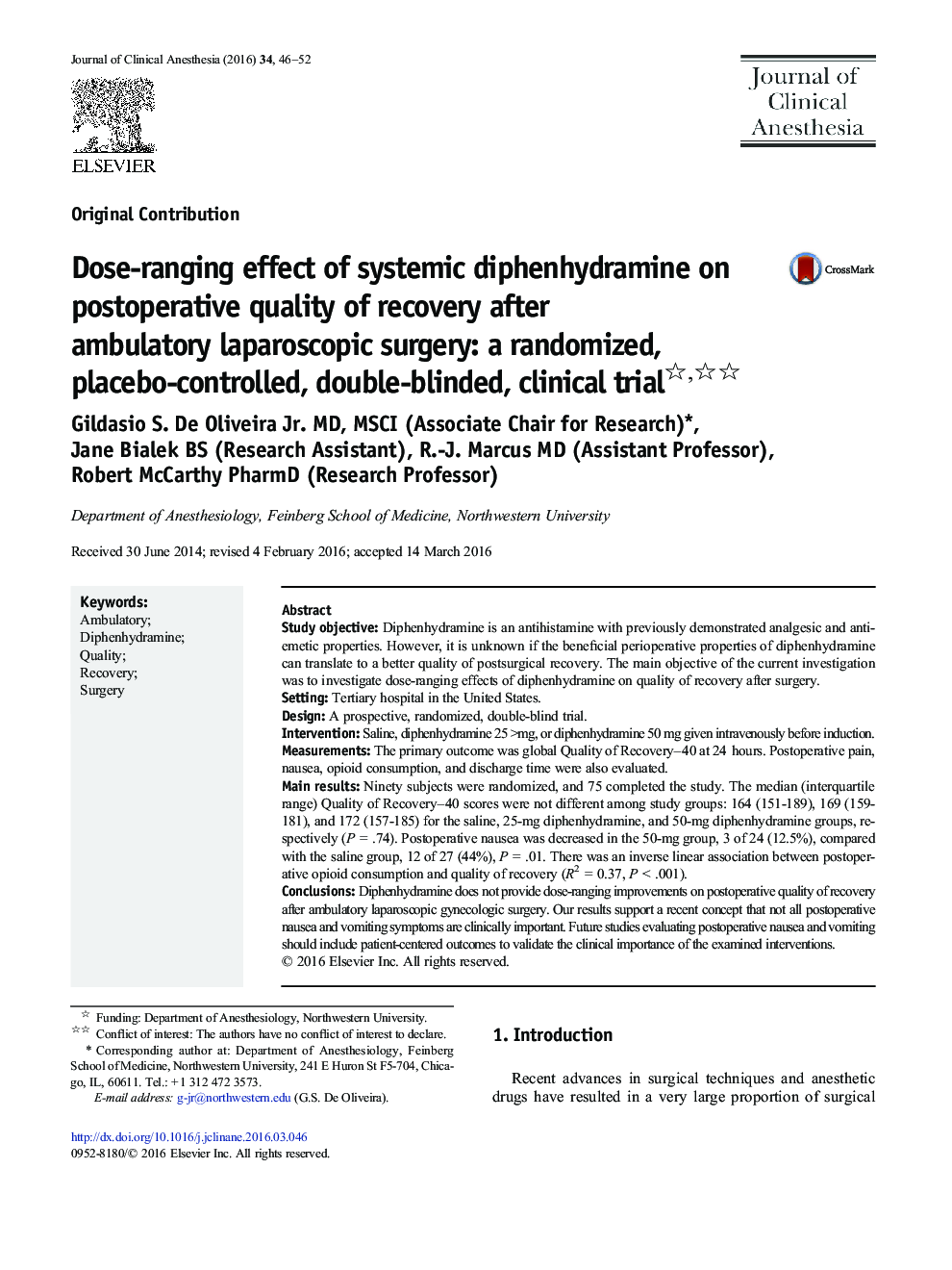| Article ID | Journal | Published Year | Pages | File Type |
|---|---|---|---|---|
| 5884472 | Journal of Clinical Anesthesia | 2016 | 7 Pages |
â¢Diphenhydramine has analgesic and antiemetic properties.â¢However, it is unknown if diphenhydramine can improve postsurgical recovery.â¢Diphenhydramine did not improve quality of recovery after ambulatory surgery.â¢Not all postoperative nausea and vomiting symptoms are clinically important.
Study objectiveDiphenhydramine is an antihistamine with previously demonstrated analgesic and antiemetic properties. However, it is unknown if the beneficial perioperative properties of diphenhydramine can translate to a better quality of postsurgical recovery. The main objective of the current investigation was to investigate dose-ranging effects of diphenhydramine on quality of recovery after surgery.SettingTertiary hospital in the United States.DesignA prospective, randomized, double-blind trial.InterventionSaline, diphenhydramine 25 >mg, or diphenhydramine 50 mg given intravenously before induction.MeasurementsThe primary outcome was global Quality of Recovery-40 at 24Â hours. Postoperative pain, nausea, opioid consumption, and discharge time were also evaluated.Main resultsNinety subjects were randomized, and 75 completed the study. The median (interquartile range) Quality of Recovery-40 scores were not different among study groups: 164 (151-189), 169 (159-181), and 172 (157-185) for the saline, 25-mg diphenhydramine, and 50-mg diphenhydramine groups, respectively (PÂ =Â .74). Postoperative nausea was decreased in the 50-mg group, 3 of 24 (12.5%), compared with the saline group, 12 of 27 (44%), PÂ =Â .01. There was an inverse linear association between postoperative opioid consumption and quality of recovery (R2Â =Â 0.37, PÂ <Â .001).ConclusionsDiphenhydramine does not provide dose-ranging improvements on postoperative quality of recovery after ambulatory laparoscopic gynecologic surgery. Our results support a recent concept that not all postoperative nausea and vomiting symptoms are clinically important. Future studies evaluating postoperative nausea and vomiting should include patient-centered outcomes to validate the clinical importance of the examined interventions.
